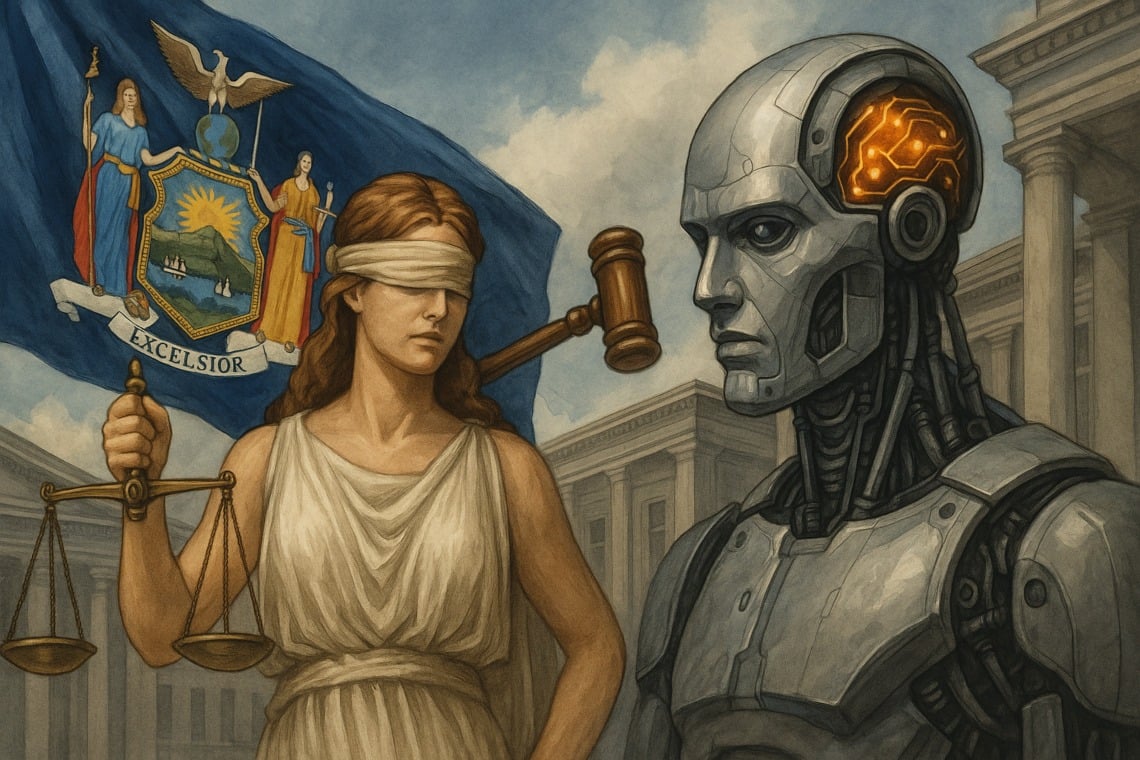The state of New York has made a significant move in the ongoing debate over artificial intelligence (AI) by approving the Raise Act. This legislation aims to prevent potentially catastrophic disasters caused by AI systems, setting a precedent for more rigorous control over technological innovations.
Summary
– The tension between security and innovation in AI
– The words of Senator Gounardes
– The response from Silicon Valley
– Key innovations of the Raise Act
– Transparency and security obligations
– Sanctions and impacts
– Future control over artificial intelligence
The Tension Between Security and Innovation in AI
The approval of the Raise Act marks an important milestone for advocates of AI regulation to protect public safety and civil rights. However, this victory is symbolic and temporary, as the bill still awaits the approval of Governor Kathy Hochul. She holds the power to amend or veto it, which keeps the final fate of the legislation uncertain.
This law highlights a profound contrast between the need for effective safeguards against AI risks and the interests of tech companies, especially those in Silicon Valley, which push for maximum speed and freedom in technological development. While the Trump administration supports AI innovation and aims to standardize federal regulations, it opposes individual states like New York adopting restrictive laws.
The Words of Senator Gounardes
Senator Andrew Gounardes, a co-sponsor of the Raise Act, clarified that the law’s goal is not to hinder innovation but to promote its safe and responsible development. He emphasized the urgency of implementing preventive measures, given the rapid pace of technological progress.
Gounardes pointed out that AI experts believe the risks associated with this technology are highly probable and alarming, making it imperative to adopt regulations to mitigate potential negative consequences. This stance attempts to balance the need for innovation with the essential requirement to protect the community.
The Response from Silicon Valley
Some major technology sector figures have reacted harshly to the measure. Anjney Midha, a partner at the venture capital firm Andreessen Horowitz, criticized the Raise Act as “yet another stupid state AI bill,” arguing that it penalizes the United States at a crucial time of intense global competition.
This criticism reflects the main fear that stringent regulations might hinder the competitiveness of US companies compared to international competitors. Concerns arise that excessive regulation could lead AI labs to limit the availability of their models in specific regions, like New York.
Key Innovations of the Raise Act
If enacted, the Raise Act would be a milestone in US AI regulation, introducing a system of transparency standards and legal obligations for major AI labs.
Transparency and Security Obligations
The law requires AI laboratories to publish detailed reports documenting the security measures adopted for their advanced models. This commitment ensures systems are designed and maintained to prevent harmful incidents.
Additionally, laboratories must immediately report any security incidents, anomalous or risky model behaviors, and any thefts or unauthorized access by third parties. This transparency aims to create an effective control system and reduce the risk of abuse or malfunction.
Sanctions and Impacts
The Raise Act imposes civil penalties of up to 30 million dollars for non-compliance, serving as a deterrent to ensure company adherence. However, concerns have been raised about economic repercussions, particularly regarding AI model availability in New York.
Democratic Representative Alex Bores reassured that no valid economic reasons exist for companies to stop offering services in New York, minimizing the risk of AI exclusion from this important market.
The Future of Control Over Artificial Intelligence
The Raise Act proposal places AI regulation at the center of political and social debate in the United States, contrasting two visions: one that aims to protect safety and rights through precise rules, and another advocating for innovation freedom without excessive restrictions.
The path to balancing these aspects is complex and evolving. If the Raise Act becomes law, it could set a precedent for controlling advanced technological developments, potentially raising the safety standard for the entire sector.
For these reasons, it is crucial to closely follow regulatory evolution and promote constructive dialogue between legislators, companies, and civil society. This approach ensures AI progress remains a positive and safe resource for everyone.
Note: This article is inspired by content from https://en.cryptonomist.ch/2025/06/16/raise-act-new-york-against-the-risks-of-artificial-intelligence/. It has been rephrased for originality. Images are credited to the original source.

